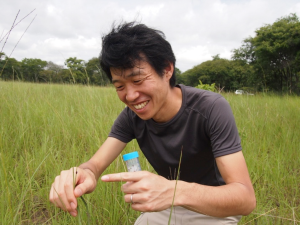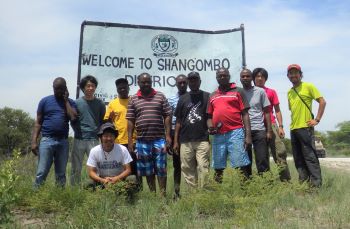- Home
- Social Action
- ★One Health Relay Report #10★
About "Tick microbe"

Profile #10: Dr. NAKAO Ryo, Associate Professor
Laboratory of Parasitology,
Department of Disease Control, Faculty of Veterinary Medicine
【Research Topics】
・Microbiome analysis of ticks and other arthropods Parasite mitochondrial genome analysis
Echinococcus multilocularis
~Tick microbe~
Over the past few years, you may have heard the term "tick" on the television news more often than before. Ticks are blood sucking arthropods that transmit various pathogens when they infest humans and animals. Recently, it has been discovered that ticks transmit a human disease (SFTS: severe fever with thrombocytopenia syndrome) with a high mortality rate in western Japan, which has led to increased awareness of ticks and tick-borne diseases.
Tick-borne diseases are reported all over the world. Especially in African countries, there are serious tick-borne livestock diseases such as East Coast Fever. Although the use of acaricides is effective in preventing ticks from infesting animals, the emergence of drug-resistant ticks and the economic difficulty of purchasing drugs on a continuous basis have led to serious damage from tick-borne infections.
Recent advances in sequencing technology have revealed that ticks harbor a variety of microorganisms, some of which seem to be important for ticks to live. We are analyzing the diversity of tick microbes in ticks collected from worldwide using the latest sequencing technology. We are also conducting research on the microorganisms that seem to be beneficial to ticks in order to develop novel control measures against ticks and tick-borne diseases.


Sequencing with collaborators in Myanmar Tick hunting trip to a remote area in Zambia
